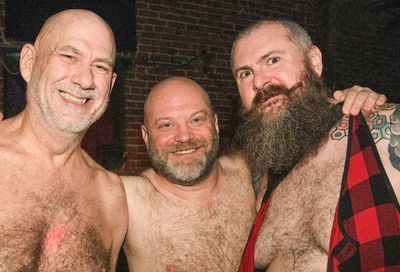Prince William County School Board passes LGBTQ protections
Individual schools will continue to make their own restroom policies to accommodate transgender students

On Wednesday, the Prince William County School Board narrowly passed a nondiscrimination policy protecting LGBTQ students, employees, and staff from bullying, harassment or mistreatment based on sexual orientation and gender identity.
The board voted 5-3, mostly along partisan and ideological lines. While school board members are technically nonpartisan, the county’s political parties can make endorsements in school board races. All those candidates who had been backed by Democrats in 2015 voted in favor of the policy, with Republican-backed candidates voting against it.
The board previously voted to delay consideration of the policy last September, with members arguing they should wait for courts to resolve the case of Virginia teen Gavin Grimm’s lawsuit against the Gloucester County School Board and a lawsuit by Liberty Counsel challenging a nearly identical nondiscrimination policy passed by the Fairfax County School Board.
Grimm’s case, which was expected to be argued before the U.S. Supreme Court, has since been remanded back to the 4th U.S. Circuit Court of Appeals for reconsideration.
But perhaps even more importantly, the Virginia Supreme Court threw out the lawsuit against Fairfax County, finding that Liberty Counsel’s clients did not have standing and did not suffer any injury from the passage of LGBTQ-inclusive nondiscrimination policies. As a result, Prince William School Board Chairman Ryan Sawyers felt the board had standing — backed up by a legal opinion by Attorney General Mark Herring — to pass its own comprehensive nondiscrimination policy.
“We’ve been through a lot as a school board over this, but this was the right thing to do,” Sawyers told InsideNova in an interview.

Danica Roem, the Democratic nominee running against Marshall in November and the first transgender person to win a party nomination for elective office in Virginia, was also in attendance at the meeting. Roem had previously testified in favor of adding nondiscrimination protections last year, prior to announcing her candidacy. She was particularly impressed with the LGBTQ youth who attended the meeting and spoke out publicly in favor of the change, saying they demonstrated tremendous courage.
Support Metro Weekly’s Journalism
These are challenging times for news organizations. And yet it’s crucial we stay active and provide vital resources and information to both our local readers and the world. So won’t you please take a moment and consider supporting Metro Weekly with a membership? For as little as $5 a month, you can help ensure Metro Weekly magazine and MetroWeekly.com remain free, viable resources as we provide the best, most diverse, culturally-resonant LGBTQ coverage in both the D.C. region and around the world. Memberships come with exclusive perks and discounts, your own personal digital delivery of each week’s magazine (and an archive), access to our Member's Lounge when it launches this fall, and exclusive members-only items like Metro Weekly Membership Mugs and Tote Bags! Check out all our membership levels here and please join us today!




























You must be logged in to post a comment.